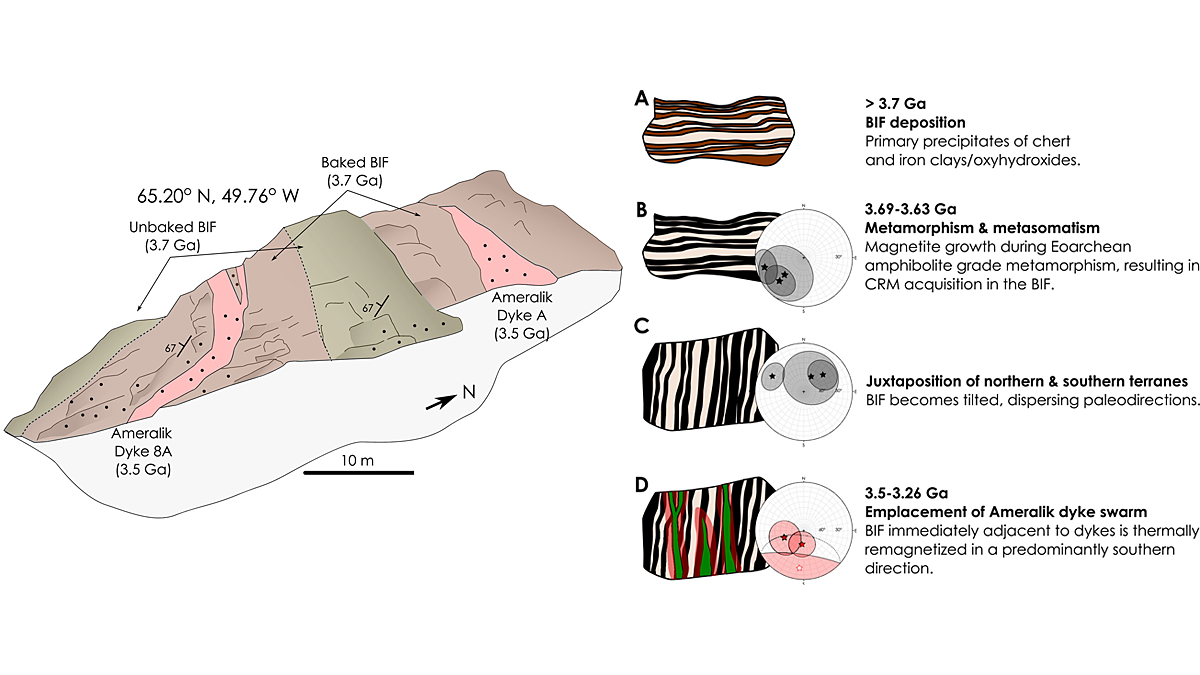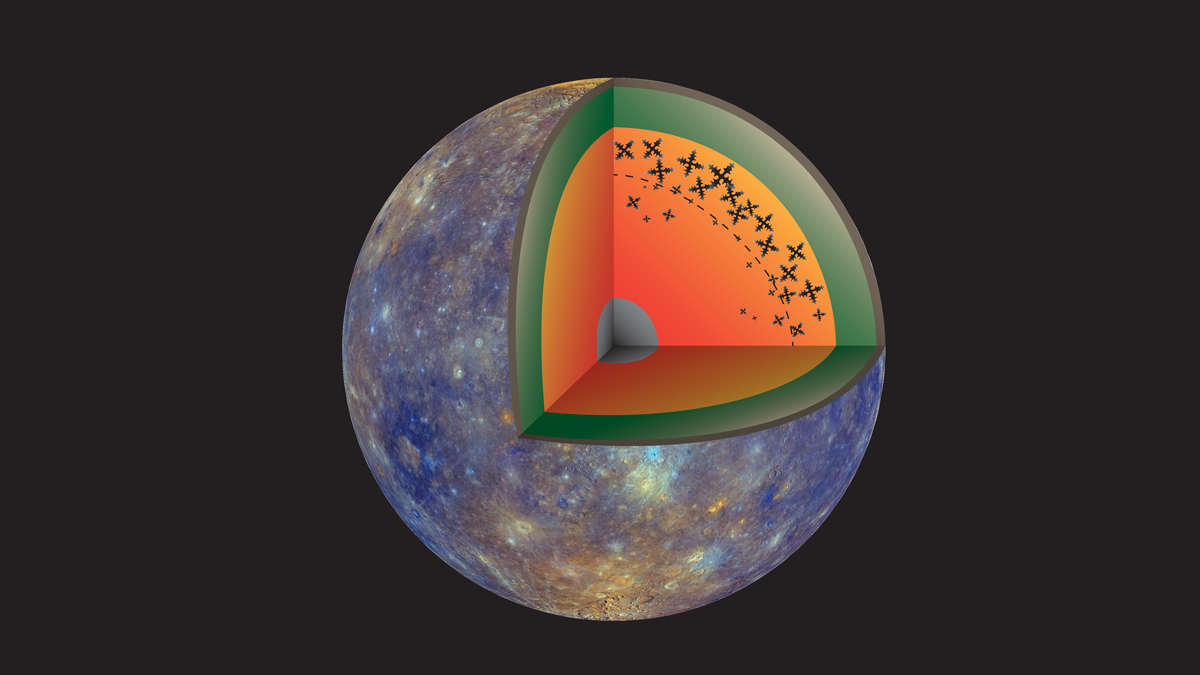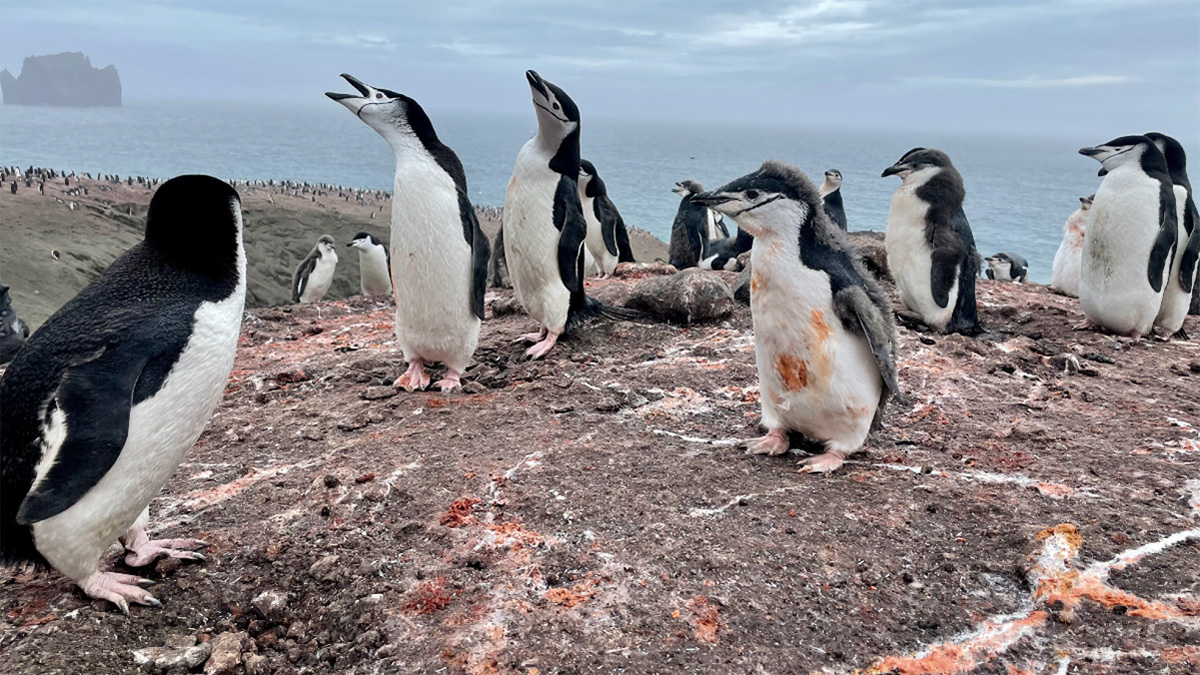研究人员对沉积物岩心进行了采样,发现磁铁矿丰富的地方也存在产甲烷细菌。
iron
Microbes Likely Form Magnetite in the South China Sea
Researchers sampled sediment cores and found that where magnetite was abundant, methane-producing bacteria were as well.
Greenland Could Have Records of 3.7-billion-year-old Geomagnetic Fields
Scientists argue that paleomagnetic field tests preserve a geomagnetic field record acquired as chemical remnant magnetization in banded iron formations in southwest Greenland.
The Open Ocean, Aerosols, and Every Other Breath You Take
Phytoplankton and other marine plants produce half of Earth’s atmospheric oxygen and have big effects on food webs and climate. To do so, they rely on nutrients from the sky that are hard to quantify.
Iron Snow Ebb and Flow May Cause Magnetic Fields to Come and Go
Lab experiments find that iron crystals in planetary cores may form in bursts, causing periodic dynamos.
Microbe Goo Could Help Guide the Search for Life on Mars
Sticky substances secreted by microbes may help create landforms on Earth. And new research shows that these substances are more preserved in iron-rich sediment. Mars is decidedly iron-rich (it’s the Red Planet, after all), so the new study adds to evidence that microbe goo could help researchers explain landform creation there. “I think this is […]
Penguin Poop May Flush Iron into the Southern Ocean
Nutrients from the seabirds’ guano fuels the growth of carbon-storing phytoplankton, but penguin populations have plunged in the past 4 decades.
Hydrogen May Push Some Exoplanets off a Cliff
High-pressure reactions of hydrogen and iron could explain gaps in the distribution of exoplanets.
El hierro está en el centro de este debate de las ciencias de la Tierra
Un nuevo estudio investiga el estado del hierro en el interior del planeta. Los hallazgos tienen repercusiones para comprender la estructura del núcleo interno.
Iron Is at the Core of This Earth Science Debate
A new study investigates iron’s form at the planet’s interior. The findings have repercussions for understanding the inner core’s structure.










